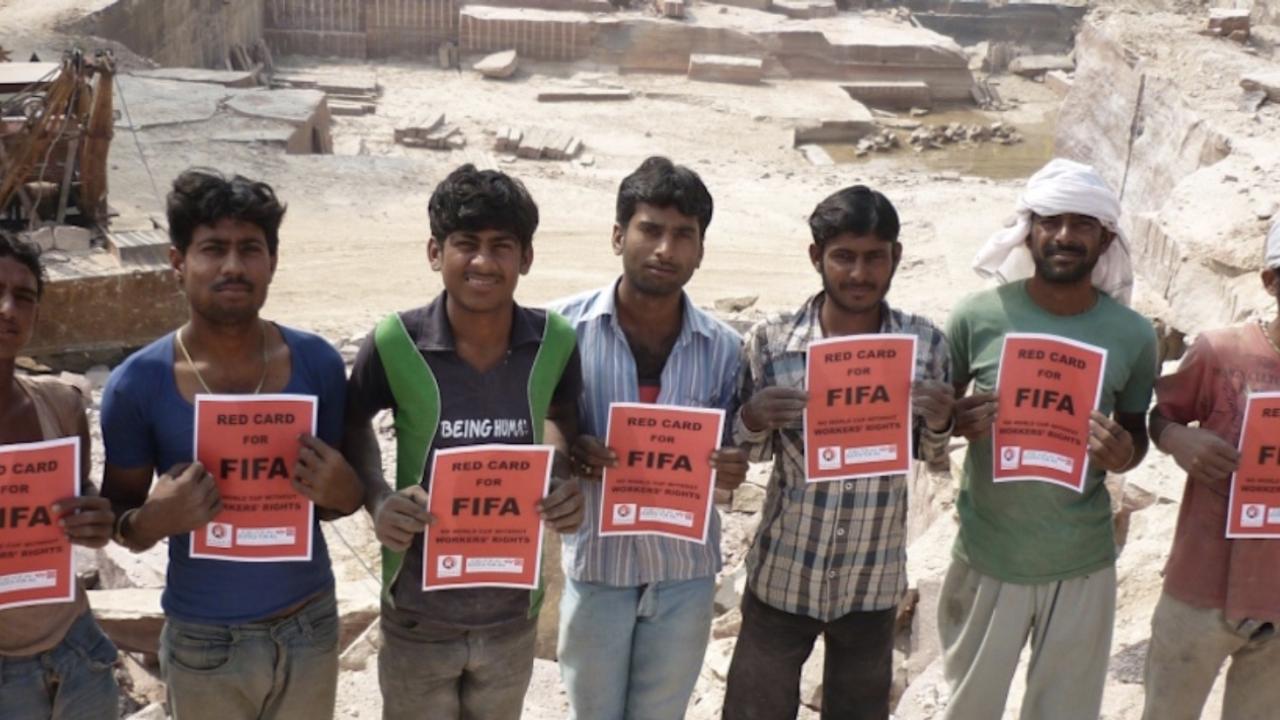
Human Rights at the Center of the Beautiful Game
Qatar's World Cup was Fueled by Human Rights Abuse
Quick Summary
- HMR Undergraduate Student Advisor Pablo Marquez Explores the Role of Labor Exploitation and Violence in the World Cup
In 2010, FIFA voted that Qatar would be the host for the 2022 World Cup, the biggest sporting event in the world. Qatar lacked the proper infrastructure to host an event of this magnitude, which, compounded with the fact that the tournament would have to be played during the winter due to Qatar’s extremely hot temperatures, made this decision strange for many. Amid claims of corruption and bribing by FIFA officials, the Qatari government was given green light to start preparations for the event.
The Middle Eastern nation didn’t have the proper stadiums in which the games had to be played. Furthermore, it lacked the facilities such as hotels, those would have to be built too, along with an entire new city and metro lines. All of these projects require a level of labor that Qatar, being a country of only 2.9 million people, simply doesn’t have. So it started to bring in a large number of people mainly from India, Nepal, Bangladesh, and the Philippines.
The process began with recruiters being sent to these countries to encourage people to work for one of the number of companies doing construction in Qatar. However, anyone wishing to be hired had to pay a “recruitment fee” of between $3,000 and $4,000, which put them in debt before they had even begun to work. Upon arrival, they are hosted in a small, cramped room with up to 10 other workers, with dirty bathrooms and kitchens, and small showers where there is barely enough water for all the workers.
The work they do adds to these horrible conditions, as they do construction labor all year round, including the summer, when temperatures can rise above 115F. Unsurprisingly, some counts, like the one carried out by the International Trades Union Association, put the number of deceased workers at 1200. This figure is considerably bigger than for any other sporting event in recent history, and it contrasts with the official report put out by the Qatari government.
On top of the ghastly working and living conditions, workers were often not given their pay for weeks at a time. They tried to change companies, but their working papers were kept by their employers to prevent this very thing, along with their passports and visas, making it impossible for them to escape Qatar. This system is common in the Middle East, being referred to as the kafala system, and it gives companies total control over migrant workers’ employment and immigration status. After much pressure, Qatar insists it has outlawed the system, but its enforcement is poor.
All of these conditions combined sound like modern slavery, as workers that are in debt are brought in, forced to work and live in terrible conditions, and are prevented from switching employment or returning to their home country. Even through this controversy, the World Cup has carried on, so one must question the integrity of those organizing this event, and their support for universal human rights.
https://www.youtube.com/watch?v=dt_Q03HNbTk (30 minute documentary)
